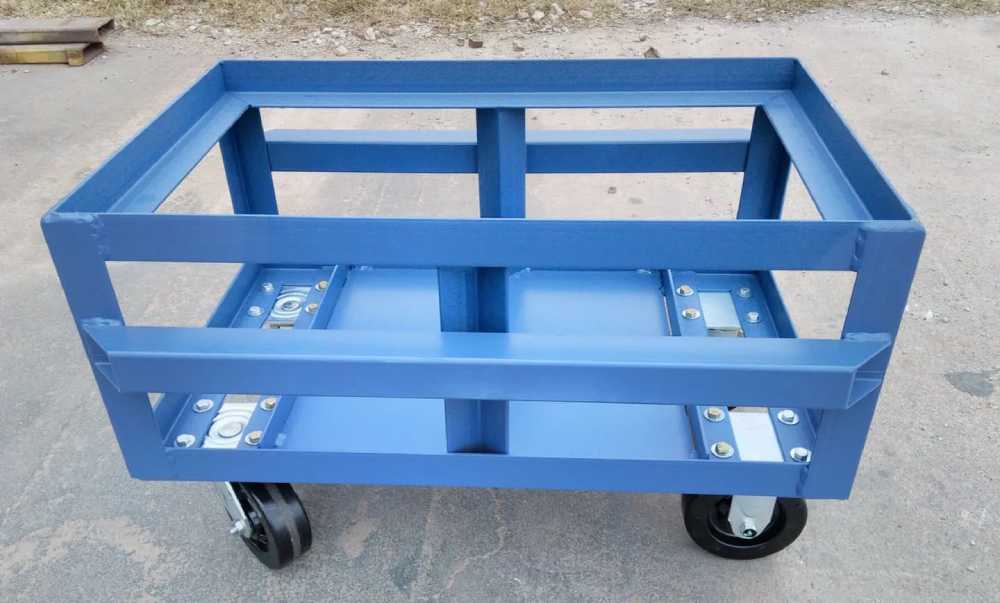Effortless Flow, Maximum Output: How Customized Material Handling Boosts Your Business
Efficiency becomes crucial in any operation where material handling is a regular workflow. Businesses can significantly refine their operational processes by integrating a custom utility cart. The bespoke approach to material handling enables workers to navigate the workplace more quickly and opens up the potential for enhanced logistics and inventory control.
The impact of custom utility carts is palpable; they streamline processes and dramatically reduce the time and effort required to transport goods, resulting in operative precision and reduced error rates.
Contents
Benefits of Custom Utility Carts in Various Industries
Various industries encounter unique challenges, which may require specific material handling solutions. Custom utility cart, designed with several features such as adjustable shelves, locking wheels, and ergonomic handles, can cater to the needs of different industry sectors to enhance functionality and user experience.
For instance, in the fast-paced healthcare industry, carts transporting delicate instruments must ensure security and speed as they move between departments. Similarly, on production floors, the need for heavy-duty carts arises to facilitate the safe and efficient transport of bulky materials without sacrificing maneuverability.
Improving Workplace Safety with Tailored Carts
Workplace safety is a considerable aspect when investing in material handling solutions. Custom-designed utility carts can be equipped with features that specifically address safety concerns relevant to the industry and particular work environment.
Such features may include enhanced wheel designs for better load-bearing capacity, brakes that ensure stationary stability, and materials that reduce the risk of sparking in explosive environments.
These purpose-specific designs help protect workers from common occupational hazards such as strain injuries and potential accidents caused by cart malfunction or misuse. Moreover, adequately designed carts lead to an organized workspace, supporting overall safety protocols.
Cost-Effectiveness of Investing in Custom Carts
The initial investment in custom utility carts for industries may seem high, but their immediate benefits can lead to significant long-term cost savings. Durability is a crucial attribute of well-designed custom carts, translating into fewer repairs and replacements. This aspect is precious in industries where equipment durability is critical to operations.
Moreover, these carts’ enhanced productivity and time savings can swiftly counterbalance the upfront costs. In environments where material handling processes are streamlined and require minimal intervention, companies can redirect resources to other areas needing improvement, further boosting operational efficiency and cost-effectiveness.
Integration with Technology
With new technologies, custom utility carts can advance in strides by incorporating sophisticated systems that optimize operations. Imagine carts with tablet holders allowing for real-time data capture, integrated weighing scales that facilitate on-the-go product weighing, or built-in power sources to charge essential tools and devices throughout the day.
Such technological integrations simplify tasks and empower workers with information and tools that support data-driven decision-making. This synergy between customization and advanced tech trends exemplifies the future of operational efficiency.
Evaluating the Need for a Custom Utility Cart
Identifying the precise moment to switch to a custom utility cart requires a comprehensive review of existing handling processes. Factors such as the frequency of item movements, the diversity of materials in circulation, and the operational impact of current material handling methods must all be carefully considered.
Such an evaluation will ensure a more informed decision-making process, resulting in a tailored cart design streamlinescing overall work efficiency.
Planning and Designing a Custom Utility Cart
A custom utility cart’s planning and design phase must be collaborative and user-centric. Pinpointing existing challenges and involving material handling experts and engineers in the design process is critical.
Such collaboration ensures that the cart meets the physical requirements, aligns with the workflow, and enhances the operator’s experience, bolstering overall workplace productivity.

